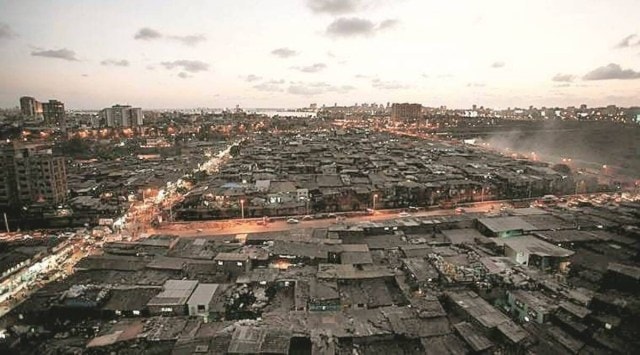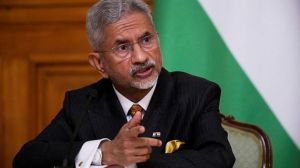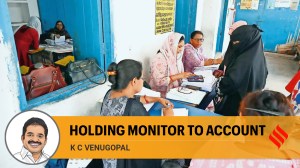Bombay HC says ‘vertical slums’ in Mumbai will cause health issues, tenants were better off on ground
The High Court says poor construction of Slum Rehabilitation buildings is a serious issue against right to life and personal liberty which ought to be addressed by the authorities.
 It also suggested that the Maharashtra government can consider giving low-cost rental housing for the migratory population who come to the city for their livelihood and such a housing pool should remain with the state.(File, representational Photo)
It also suggested that the Maharashtra government can consider giving low-cost rental housing for the migratory population who come to the city for their livelihood and such a housing pool should remain with the state.(File, representational Photo)vThe Bombay High Court on Friday raised concerns over poor construction of ‘vertical slums’ in the form of Slum Rehabilitation (SR) buildings in Mumbai city. It said the lack of ventilation and space between such buildings would lead to health problems and the tenants were better off on ground.
The court said that it was a serious issue against right to life and personal liberty which ought to be addressed by the authorities.
It also suggested that the Maharashtra government can consider giving low-cost rental housing for the migratory population who come to the city for their livelihood and such a housing pool should remain with the state.
A special bench of Justices Girish S Kulkarni and Somsekhar Sundaresan was hearing a suo motu plea initiated after the July 30 Supreme Court direction to the high court to consider ordering performance audit of the Maharashtra Slum Areas (Improvement, Clearance and Redevelopment) Act, 1971 and to review working of the said law and identify the causes of problems faced in its implementation.
On August 16, the bench had expressed concern over the lack of effective slum rehabilitation and land management in cities, and had said that the government should have a vision to make an international city like Mumbai, which is the financial capital of the country to be ‘absolutely slum-free’ with the help of Slums Act, 1971.
On Friday, the bench noted that it would not appreciate the SR buildings or those assigned to Project Affected Persons (PAP) which resembled ‘vertical slums’.
Justice Kulkarni orally remarked, “The buildings are congested. There is no sunlight, no ventilation (in such buildings). This will cause health problems. There is no space between the two buildings. They (tenants) were better off on ground encroaching. In our opinion, it will be a serious issue against Article 21 of the Constitution.”
The judge also said that the HC had examined public housing schemes in the United Kingdom, France, Singapore and other countries in the past judgment on suo motu public interest litigation (PIL) related to illegal constructions and said such schemes in foreign countries were effective.
Advocate General Birendra Saraf said that only some of the SR buildings had issues and added that “we cannot lose sight of social and ground realities in India and Mumbai” and can come up with a strong mechanism by balancing rights of the people.
“Ultimately we should be alive to the fact that we will have a more migratory population. When they are here, what about their accommodation. Work is available for them but no residence, hence they go to live in slums and encroach. Can give them low cost rental housing. Let there be a housing pool that remains with the state,” Justice Kulkarni added.
Suggesting a committee of Slum Rehabilitation Authority (SRA) to enable the eligible slum dwellers get their dues and ensure further proliferation of slums is avoided, the judge remarked, “It is not the slum dwellers who are going to developers but developers are going to slum dwellers. Bunch of slum dwellers controlling these things as we have said it in one of our past judgments. In some cases, the moment there is realisation that things are not going well with the developer, an administrator will be appointed by the housing society, who will in turn help the developer. There has to be a committee of SRA having a robust mandate so that slum dwellers are in a better position.”
The court directed the parties to the matter to file their suggestions based on the issues raised in the Supreme Court order along with other suggestions and asked the Maharashtra government authorities to consider the same.
The HC will hear the plea next on October 25.







